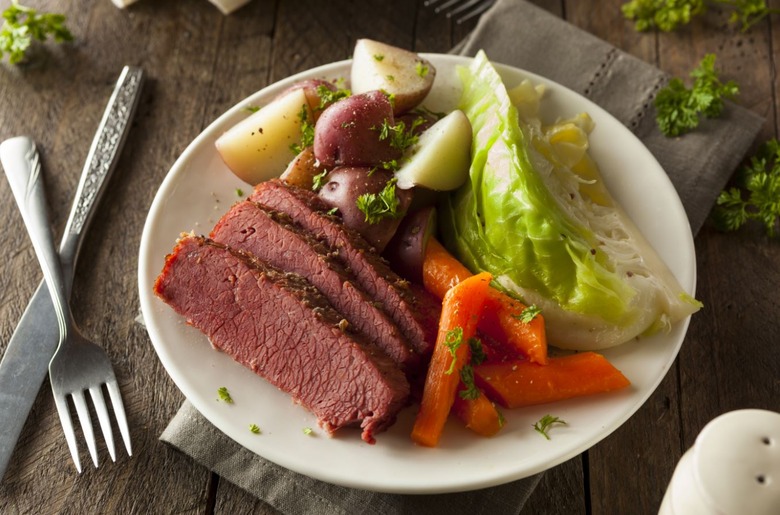Forget What You've Heard: Corned Beef And Cabbage Actually IS Authentically Irish
We may receive a commission on purchases made from links.
Corned beef and cabbage is perhaps the dish most associated with St. Patrick's Day. While most assume that a dish so widely eaten during St. Patty's Day festivities in the States must also be popular in Ireland, there are also plenty who claim that corned beef and cabbage is an American invention, created by immigrants in New York City's Lower East Side as a mashup of Irish cabbage and bacon and Jewish corned beef.
In reality, Ireland's relationship with corned beef dates back hundreds of years. As noted authority on Irish cuisine (and The Daily Meal's editorial director) Colman Andrews put it in his cookbook The Country Cooking of Ireland:
"Leaving aside the question of why the Irish couldn't have found an acceptable substitute for their bacon in East Coast cities that were full of German and Polish butchers — surely Middle European smoked pork would be more like Irish bacon than beef pickled with spices and salt would — the fact is that corned beef has been eaten, with and without cabbage, in Ireland since at least the 1600s. Under the name salt beef it was even exported in large quantity from Cork to continental Europe, the West Indies, and Newfoundland."
Andrews goes on to quote Irish historian Bríd Mahon, who writes: "Boiled and served with green cabbage and floury potatoes, [corned beef] was considered an epicurean dish to be eaten at Hallowe'en, at Christmas, on St. Patrick's Day, at weddings and at wakes, a tradition that was carried to the New World by the emigrants of the eighteenth and nineteenth centuries."
There's a popular misconception that the Irish were on the whole very poor and subsisted on potatoes and scraps of bacon, and it's true that the rural Irish population was largely lower-class. But the middle-class and landed Irish, as well as Anglo-Irish landowners, did in fact eat corned beef and cabbage, and still do.
